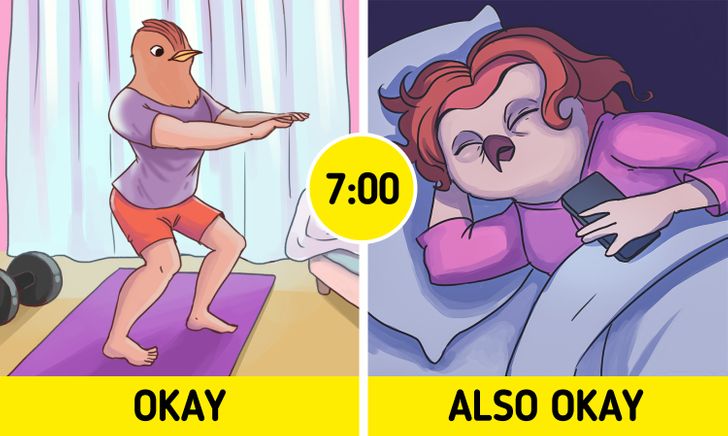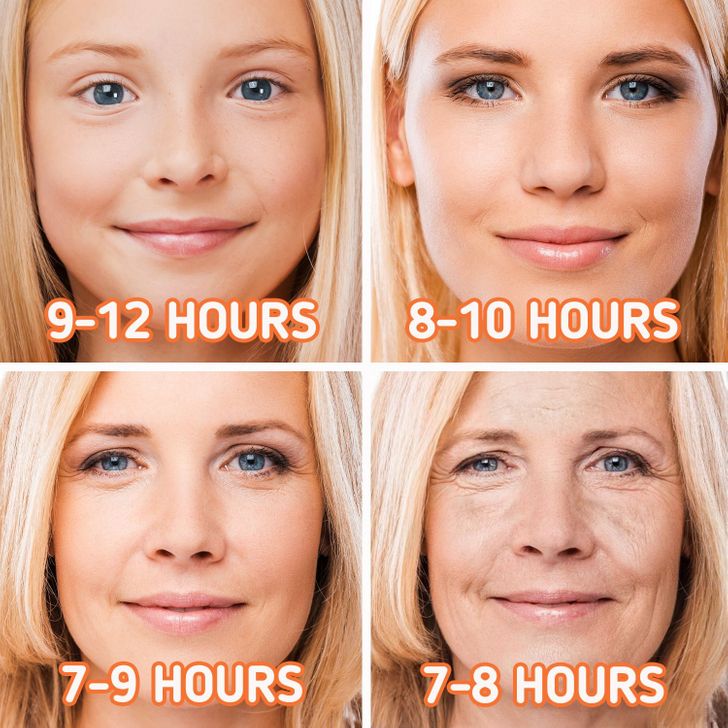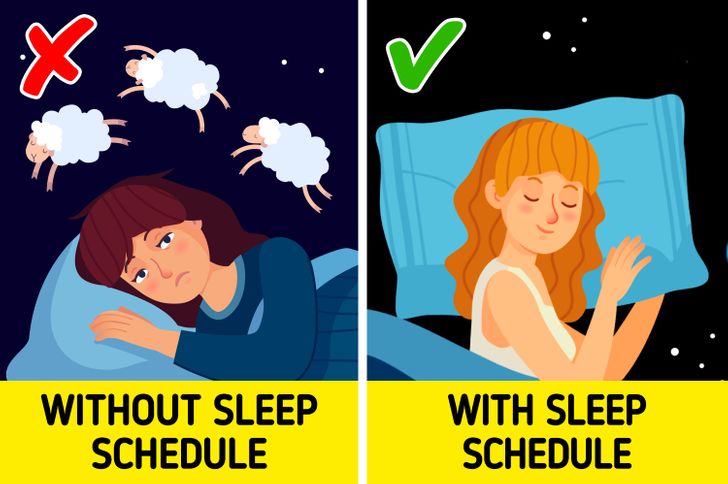Achieving a good night’s sleep is essential for physical health, mental clarity, and overall well-being. But what if you could fine-tune your sleep schedule to ensure that you wake up refreshed every day? Calculating the perfect time to fall asleep and wake up isn’t just about counting hours—it’s about understanding your body’s natural rhythms, determining your ideal sleep duration, and creating consistent habits. In this comprehensive guide, we’ll walk you through the steps to calculate the optimal time to fall asleep and wake up, along with practical tips to implement a sleep schedule that works for you.
Whether you’re looking to boost your energy, improve your mood, or simply get the most out of your day, the following strategies will help you master your sleep routine.
Start With Choosing When to Wake Up

The first step in creating your perfect sleep schedule is to decide on your ideal wake-up time. This choice often depends on your personal commitments, work schedule, and lifestyle preferences.
Key Considerations:
Morning Productivity:
Many successful people swear by waking up early as a way to boost productivity. If you’re someone who prefers a quiet start to your day, select a wake-up time that allows you a peaceful morning routine.
Natural Light Exposure:
Waking up at a consistent time helps regulate your circadian rhythm. Exposure to natural light in the morning can reinforce your body’s internal clock and promote alertness.
Harvard Health Publishing explains the role of natural light in setting your biological clock.
Consistency is Key:
Choose a wake-up time that you can maintain every day, including weekends. Consistency helps improve sleep quality and ensures that your body adapts to a regular routine.
Practical Tip:
Decide on your wake-up time based on your daily obligations and stick to it. Whether it’s 6:00 a.m. or 7:30 a.m., consistency in your wake-up time sets the stage for better sleep quality and overall health.
Know How Much Time You Need for Sleep

The next crucial step is to determine how much sleep your body needs. Sleep requirements can vary by age, lifestyle, and individual differences, but most adults need between 7-9 hours of sleep each night for optimal functioning.
Factors to Consider:
Age and Health:
While the average adult needs about 7-9 hours of sleep, younger individuals or those recovering from illness may require more. It’s important to listen to your body and adjust your sleep duration accordingly.
Lifestyle Demands:
High-stress lifestyles or physically demanding routines might increase your sleep needs. On the other hand, a less active lifestyle might require slightly less sleep.
Quality vs. Quantity:
It’s not just about the number of hours you sleep—quality matters, too. Deep, restorative sleep is essential for memory consolidation, immune function, and overall well-being.
National Sleep Foundation provides guidelines on optimal sleep duration based on age and lifestyle.
Practical Tip:
Track your sleep over a couple of weeks using a sleep diary or a sleep-tracking device. Note how you feel after different amounts of sleep, and adjust until you find the duration that leaves you feeling most refreshed.
Calculate What Time To Go To Sleep

Once you’ve decided on a consistent wake-up time and determined your ideal sleep duration, the next step is to calculate your bedtime. The calculation is simple: subtract the number of hours you need from your wake-up time.
Example Calculation:
- If you need 8 hours of sleep and plan to wake up at 6:30 a.m., you should aim to fall asleep by 10:30 p.m.
- If you require 7 hours, then your bedtime would be 11:30 p.m.
Additional Considerations:
Wind-Down Time:
It’s important to factor in the time it takes to fall asleep—typically about 10-20 minutes. Make sure you start your bedtime routine a bit earlier to account for this transition period.
Pre-Sleep Routine:
Establish a calming pre-sleep routine that may include activities like reading, light stretching, or meditation. This can help signal to your brain that it’s time to wind down, making it easier to fall asleep at your calculated time.
Practical Tip:
If you find that you need extra time to fall asleep, adjust your bedtime accordingly. Aim for a routine that allows you to be in bed and ready to sleep at least 20-30 minutes before your calculated sleep time.
Earlier Isn’t Necessarily Better

There’s a common misconception that waking up early always leads to greater productivity. However, what matters most is aligning your sleep schedule with your natural circadian rhythm rather than simply choosing an arbitrarily early time.
Key Insights:
Chronotypes:
Everyone has a unique chronotype, which determines whether you’re naturally inclined to be a morning person or a night owl. Forcing yourself into a schedule that conflicts with your internal clock can lead to sleep deprivation and decreased productivity.
Harvard Medical School explores the concept of chronotypes and their impact on sleep.
Optimal Performance:
Instead of striving to wake up early just for the sake of it, focus on identifying the time when you naturally feel most alert and energized. Align your sleep schedule with this natural inclination to maximize productivity and well-being.
Quality Over Quantity:
The quality of sleep is more important than simply the quantity of hours. It’s better to have a consistent, high-quality sleep schedule that fits your body’s natural rhythm than to force an early wake-up that leads to sleep disruption.
Practical Tip:
Experiment with slight adjustments to your wake-up time to find what works best for you. If you’re naturally a night owl, gradually shifting your schedule earlier may improve your overall sleep quality without forcing an unnatural change.
Keeping A Consistent Sleep Schedule Is The Key

Consistency is perhaps the most crucial element of a successful sleep routine. A consistent sleep schedule reinforces your body’s internal clock, making it easier to fall asleep and wake up naturally.
Benefits of Consistency:
Regulated Circadian Rhythm:
Going to bed and waking up at the same time every day helps regulate your circadian rhythm, ensuring that your body knows when it’s time to rest and when it’s time to be alert.
Improved Sleep Quality:
A consistent sleep schedule can lead to deeper, more restorative sleep, reducing the risk of sleep disorders and daytime fatigue.
Enhanced Metabolism and Hormonal Balance:
Regular sleep patterns support the regulation of hormones such as cortisol, melatonin, and insulin, which are critical for overall health and weight management.
Expert Perspective:
The National Sleep Foundation emphasizes the importance of a regular sleep schedule in achieving quality sleep and maintaining optimal health.
Practical Tip:
Set a fixed bedtime and wake-up time for every day of the week, including weekends. Use reminders or alarms if necessary, and commit to a relaxing pre-sleep routine to help signal to your body that it’s time to wind down.
Going To Bed Late Requires Extra Sleep Hygiene

If your lifestyle or work commitments force you to go to bed later, it’s essential to implement extra sleep hygiene practices to ensure that you still get quality sleep. A late bedtime doesn’t have to mean poor sleep if you follow these guidelines.
Enhanced Sleep Hygiene Tips for Late Nights:
Minimize Screen Time:
Exposure to blue light from phones, tablets, and computers can interfere with melatonin production and make it harder to fall asleep. Try to avoid screens at least an hour before bed or use blue light filters.
Create a Calm Environment:
Ensure your bedroom is a sanctuary for sleep. This means a cool, dark, and quiet room free from distractions. Consider using blackout curtains and a white noise machine if needed.
Avoid Caffeine Late in the Day:
Caffeine can stay in your system for several hours. If you’re going to bed late, limit caffeine intake after mid-afternoon to ensure it doesn’t interfere with your sleep.
Wind-Down Rituals:
Engage in calming activities before bed, such as reading, gentle yoga, or meditation. A consistent pre-sleep routine can significantly improve the quality of your sleep, even if you’re heading to bed later than usual.
Practical Tip:
Even if your bedtime is later than ideal, prioritize creating a routine that minimizes disruptions. This might include dimming lights gradually, setting a fixed time to disconnect from electronic devices, and engaging in relaxing activities to signal your body that it’s time to sleep.
For more strategies on maintaining good sleep hygiene, Harvard Health Publishing offers practical advice on optimizing your sleep environment and routine.
Conclusion: Mastering Your Sleep Schedule for Optimal Health and Productivity
Calculating the perfect time to fall asleep and wake up is more than a mathematical equation—it’s a holistic approach to understanding and aligning with your body’s natural rhythms. By choosing your ideal wake-up time, determining the right amount of sleep, and calculating your bedtime accordingly, you can create a sleep schedule that supports your overall health and productivity.
Remember that it’s not just about waking up early; it’s about finding the schedule that fits your natural chronotype and lifestyle. Consistency is key: maintaining a regular sleep schedule helps regulate your circadian rhythm and ensures you experience deep, restorative sleep. And if your schedule requires a late bedtime, extra sleep hygiene practices can help you still achieve quality rest.
Embrace these strategies, experiment with your sleep routine, and adjust based on how your body responds. With time, you’ll find that small changes in your sleep habits can lead to significant improvements in energy levels, mood, cognitive function, and overall well-being.
For more expert advice and sleep optimization tips, explore trusted resources such as National Sleep Foundation, Harvard Medical School – Healthy Sleep, and Mayo Clinic’s Sleep Health. Invest in your sleep, and enjoy the transformative benefits of a well-optimized sleep schedule that propels you toward a healthier, more productive life.









Leave a Reply